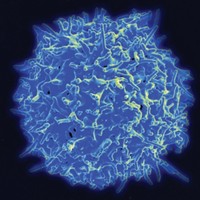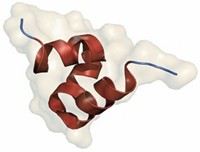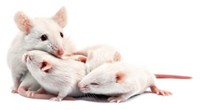Advertisement
Grab your lab coat. Let's get started
Welcome!
Welcome!
Create an account below to get 6 C&EN articles per month, receive newsletters and more - all free.
It seems this is your first time logging in online. Please enter the following information to continue.
As an ACS member you automatically get access to this site. All we need is few more details to create your reading experience.
Not you? Sign in with a different account.
Not you? Sign in with a different account.
ERROR 1
ERROR 1
ERROR 2
ERROR 2
ERROR 2
ERROR 2
ERROR 2
Password and Confirm password must match.
If you have an ACS member number, please enter it here so we can link this account to your membership. (optional)
ERROR 2
ACS values your privacy. By submitting your information, you are gaining access to C&EN and subscribing to our weekly newsletter. We use the information you provide to make your reading experience better, and we will never sell your data to third party members.
Biological Chemistry
Paradox of Antidepressants
Effect of fluoxetine on young mice highlights serotonin's growth role
by LOUISA DALTON
November 1, 2004
| A version of this story appeared in
Volume 82, Issue 44

NEUROMEDICINE
Infant mice given fluoxetine (Prozac) for a short period grow into adult mice that exhibit abnormal behavior resembling anxiety and depression [Science, 306, 879 (2004)]. The finding is unsuspected because administering fluoxetine to anxious and depressed adults--whether mouse or human--makes them less anxious, less depressed, and more emotionally even-keeled. The work, by Mark Ansorge, Jay A. Gingrich, and coworkers at Columbia University, indicates that serotonin could play a crucial role in brain development.
Those with depression often suffer from low levels of serotonin, a neurotransmitter that influences mood. Selective serotonin reuptake inhibitors (SSRIs), such as fluoxetine, increase the availability of serotonin by inhibiting its removal from the nerve synapse by the serotonin transporter. Yet serotonin is also a growth factor, Gingrich says. It helps with nerve differentiation and migration of cells in the developing central nervous system.
The effect of SSRIs on immature mice is far different from that on mature mice, Gingrich notes. If the same pattern applies to humans, these age-dependent effects could help explain why SSRIs are sometimes not effective or even countereffective in children and adolescents.
In the study, Gingrich administered fluoxetine for 18 days to infant mice, beginning when they were four days old, and then observed the behavior of the mice nine weeks later. The mice, by then adults, displayed indicators of what would be called anxiety and depression in humans.
Mouse brain development during the time of dosing corresponds to that of humans from the third trimester into early childhood. Further studies in humans will establish the human response and may be able to determine the window of time when serotonin plays a role in brain development.






Join the conversation
Contact the reporter
Submit a Letter to the Editor for publication
Engage with us on Twitter